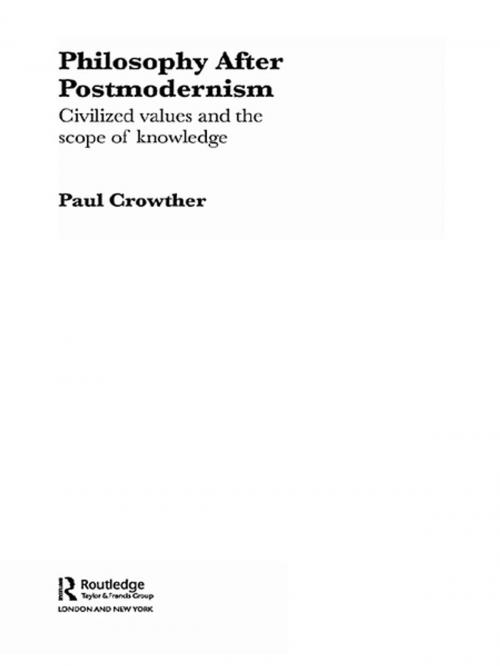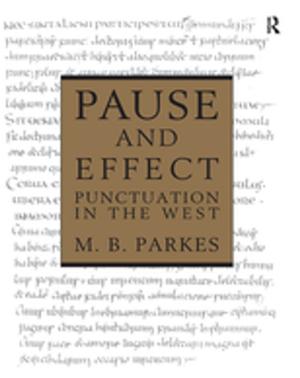Philosophy After Postmodernism
Civilized Values and the Scope of Knowledge
Nonfiction, Religion & Spirituality, Philosophy| Author: | Paul Crowther | ISBN: | 9781134388608 |
| Publisher: | Taylor and Francis | Publication: | September 2, 2003 |
| Imprint: | Routledge | Language: | English |
| Author: | Paul Crowther |
| ISBN: | 9781134388608 |
| Publisher: | Taylor and Francis |
| Publication: | September 2, 2003 |
| Imprint: | Routledge |
| Language: | English |
Formulating a new approach to philosophy which, instead of simply rejecting postmodern thought, tries to assimilate some of its main features, Paul Crowther identifies conceptual links between value, knowledge, personal identity and civilization understood as a process of cumulative advance.
To establish these links, Crowther deploys a mode of analytic philosophy influenced by Cassirer. This approach recontextualizes precisely those aspects of postmodernism which appear, superficially, to be fuel for the relativist fire. This method also enables him to illuminate some of the great practical dangers of the postmodern era - most notably the widespread inability or unwillingness to distinguish between signs and reality. Crowther renews analytic philosophy as a searching form of conceptual and cultural critique that pushes beyond the limits of postmodern thought.
Essential reading for advanced students and academics interested in Twentieth Century Philosophy, Philosophy After Postmodernism will also be of value to scholars working in the fields of Cultural Studies and Sociology.
Formulating a new approach to philosophy which, instead of simply rejecting postmodern thought, tries to assimilate some of its main features, Paul Crowther identifies conceptual links between value, knowledge, personal identity and civilization understood as a process of cumulative advance.
To establish these links, Crowther deploys a mode of analytic philosophy influenced by Cassirer. This approach recontextualizes precisely those aspects of postmodernism which appear, superficially, to be fuel for the relativist fire. This method also enables him to illuminate some of the great practical dangers of the postmodern era - most notably the widespread inability or unwillingness to distinguish between signs and reality. Crowther renews analytic philosophy as a searching form of conceptual and cultural critique that pushes beyond the limits of postmodern thought.
Essential reading for advanced students and academics interested in Twentieth Century Philosophy, Philosophy After Postmodernism will also be of value to scholars working in the fields of Cultural Studies and Sociology.















